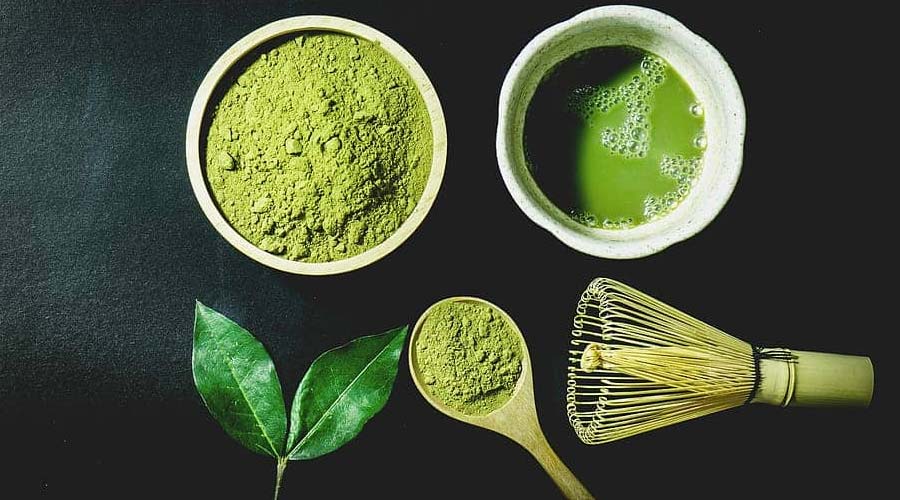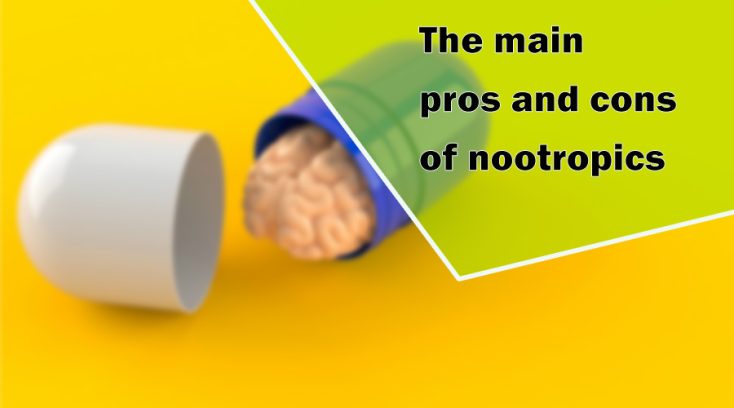If you’re like most people, you’ve probably heard about caffeine and l-theanine – but you may not know what they are or what they can do for you. Caffeine is the most widely consumed psychoactive drug in the world. It is found in almost all types of beverages, from coffee to energy drinks. Caffeine is also used as a psychoactive agent in its own right, for example, as a stimulant for people who are trying to lose weight. L-theanine is another widely consumed psychoactive agent. It is found in tea and other teas and has been shown to have cognitive benefits, such as reducing anxiety and improving memory formation. In addition to these benefits, both caffeine and l-theanine can also improve memory function and focus. In this article, we’ll outline the basics of these two substances and how they can benefit your health.
Table of Contents
What is L- theanine?

L-theanine is a amino acid found in certain green tea leaves. It has been shown to be effective in reducing anxiety and stress, and increasing focus and concentration. It is also thought to have some anti-depressant effects. Some people find that taking L-theanine before bed helps them get a good night’s sleep.
Dosage for L-theanine
L-theanine is a natural amino acid that can be acquired through green tea consumption. Dosages for L-theanine vary depending on the product, but generally ranges from 200mg to 800mg. Studies have shown that L-theanine can improve mood and cognition, but should be taken with caution as it can cause drowsiness.
L-theanine benefits

This natural constituent in green tea has been shown to have many benefits for mental health. In particular, it has been shown to be effective at improving mood, focusing attention, and reducing anxiety. L-theanine is also known to help improve sleep quality and reduce cognitive decline in older adults. Other benefits of this natural amino acid is discussed below.
Increased focus
L-theanine, an amino acid found in green tea, has been shown to increase focus and attention. In a study published in the journal Nutritional Neuroscience, participants who took L-theanine for six weeks showed improvements in their ability to focus and pay attention. The researchers suggest that L-theanine might help improve cognitive function by helping to reduce anxiety and stress.
Anxiety and stress relief
L-theanine is an amino acid that has been shown to promote relaxation and help reduce generalized anxiety disorder anxiety and stress. It also works by acting as a mood-altering neurotransmitter, helping to improve brain function and lowering arousal levels. Additionally, Theanine reduces psychological and physiological stress responses.
Blood pressure management
Increasing intake of L-theanine has been shown to decrease blood pressure in pre-hypertensive and hypertensive populations. In a study with 24 patients, daily ingestion of 250 mg L-theanine for eight weeks lowered systolic BP by 6.6 mm Hg and diastolic BP by 2.1 mm Hg compared to the control group. Benefits were seen despite no changes in other cardiovascular risk factors. It is thought that L-theanine works via relaxation of vascular smooth muscle cells, which reduces blood pressure by reducing extrusion of blood from the ventricles.
Tumor and cancer treatment
L-theanine is a natural compound found in green tea that has been shown to have anti-cancer properties. It has been shown to help reduce tumor size and promote cancer cell death. L-theanine is also known to improve cognitive function and mood, making it an ideal supplement for people with cancer.
Better immunity
L-theanine has been shown to improve cognitive function, reduce anxiety and stress levels, and boost immunity. In a study published in Nutrition & Metabolism, researchers found that L-theanine improved the function of white blood cells and helped prevent infections. The researchers also found that taking L-theanine in supplement form improved the function of white blood cells and reduced infections. In another study, it was found out that L-theanine could help decrease upper respiratory tract infections. Specifically, green tea catechins such as oxidants and theanine are said to be effective at preventing the flu.
L-theanine risks and side effects
L-theanine, a constituent of green tea, has been reported to have anxiolytic effects and protect against neuronal damage. However, L-theanine also appears to possess some risks, including adverse reaction profiles, hepatotoxicity, neuropsychiatric side effects and even addiction potential in certain individuals. As such, it is important to be aware of the potential risks and benefits of using L-theanine before making any decisions about its use.
What is caffeine?

Caffeine, also known as the “energy drink of the world,” is a psychoactive stimulant found in various plants and products. It can be found in coffee, tea, cola, cocoa, guarana and other foods. Caffeine is a central nervous system stimulant that increases energy and alertness.
Dosage for caffeine
Caffeine is a stimulant found in many foods and beverages. The amount of caffeine in these products can vary, and the label may not always indicate the amount of caffeine. For example, coffee contains about 95 milligrams of caffeine per cup, while energy drinks may contain up to 320 milligrams. The recommended daily intake of caffeine is 400 to 600 milligrams.
Caffeine benefits

Caffeine is a stimulant found in coffee, tea, soda and other popular beverages. It is also found in some over the counter medications. Caffeine intake is thought to improve focus and concentration, as well as energy levels. This stimulation can help people with attention deficit hyperactivity disorder (ADHD) focus and stay on task.
Some people also report that caffeine helps them feel alert and awake. It is also added to some medications, including some pain relievers, cold and flu medications and decongestants. Caffeine helps to improve the absorption of other medications by increasing blood flow to the intestines, and it can also help to prevent over-the-counter medication overdoses.
Caffeine risks and side effects
Caffeine is a psychoactive stimulant that can have negative effects on the body. It can increase heart rate and decrease sleep time. It may also cause a short but dramatic increase in your blood pressure even if you don’t have high blood pressure. There are also potential side effects from caffeine consumption such as anxiety symptoms, restlessness, and dehydration. Be aware of the risks associated with caffeine before you consume it and be sure to talk to your doctor about any concerns you may have.
L-theanine and caffeine: What are the secrets of their relationship?

Recent studies have shown that caffeine and L-theanine working together in combination affect human cognition as evidenced by oscillatory alpha-band activity and attention task performance. Scientists aren’t sure why this is, but they think that the two substances may work together to improve attention and subjective alertness. L-theanine is a natural compound found in green tea and other plants. It is often used as a relaxant and has been linked to improved moods and sleep quality. Coffee also contains caffeine, which is why some people believe that the two substances work well together.
Final statement
In conclusion, caffeine and l theanine are two substances that work together to provide a number of benefits. While caffeine is well known for its energy boosting effects, l theanine is less well known but equally beneficial. When taken together, they can improve cognitive function, help you focus, and boost your energy levels. If you’re looking for an easy way to improve your productivity, consider taking a supplement that contains both caffeine and l theanine.
FAQ
What happens when you take L-theanine with caffeine?
Caffeine is a stimulant that can increase alertness and energy levels. It is also the main ingredient in many coffee drinks. L-theanine is a natural supplement that has been shown to improve concentration and relax the mind. When taken together, caffeine and L-theanine can have synergistic effects on cognition and mood. However, it is important to be aware of potential side effects when taking these substances together, as they can increase anxiety or agitation.
When should I take L-theanine with caffeine?
In the world of caffeine, there are two camps: those who believe that an L-theanine and caffeine pairing is a recipe for disaster, and those who believe that it’s the perfect way to energize and focus. There are plenty of studies that support either position, but the answer to when to drink these two caffeinated beverages together really depends on your own personal preferences.
If you suffer from anxiety or feel jittery after drinking caffeine, then it might be best to avoid pairing it with L-theanine. But if you find that coffee or tea help you stay focused and motivated throughout the day, then adding in L-theanine can definitely enhance your experience.
What should you not take with theanine?
Theanine, a psychoactive compound found in green tea, has been shown to improve attention and focus. However, it should not be taken with theanine include alcohol, prescription medications, and illegal substances. When taken with alcohol, L-theanine can increase the risk for drowsiness and falls. It can also interact with other prescription medications, such as antidepressants and seizure medications, leading to dangerous side effects. If you are taking any kind of medication, it is important to talk to your doctor about how l-theanine might interact with it before using it.
Does L-theanine give you anxiety?
Since ancient times, people have known that L-theanine as a functional food additive can help calm the nerves. For example, in the 1800s, a French doctor prescribed it to patients suffering from anxiety disorders.
Recently, scientists have started to explore its potential as a cognitive enhancer and anxiety reducer. So far, the majority of research has found that L-theanine does not cause anxiety or any other side effects. However, more research are needed to confirm this.
How much L-theanine should I take with caffeine?
This is a question that has been debated for years by coffee lovers and L-theanine users alike. The answer to this question largely depends on your body weight, caffeine tolerance, and metabolism. Generally speaking, it is recommended to consume around 100mg of caffeine with 400mg of L-theanine.
This combination is safe for most people and may help with anxiety, depression, and sleep. However, it is important to note that some people may experience gastrointestinal side effects and a headache from taking this much caffeine.




